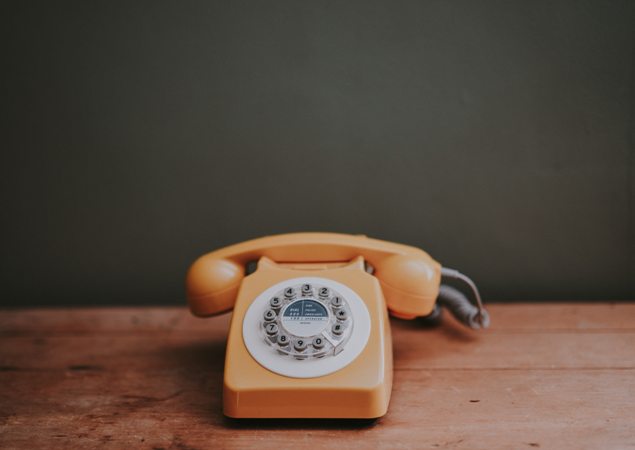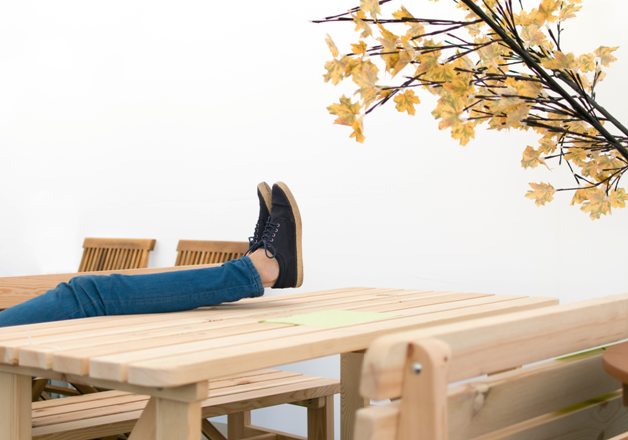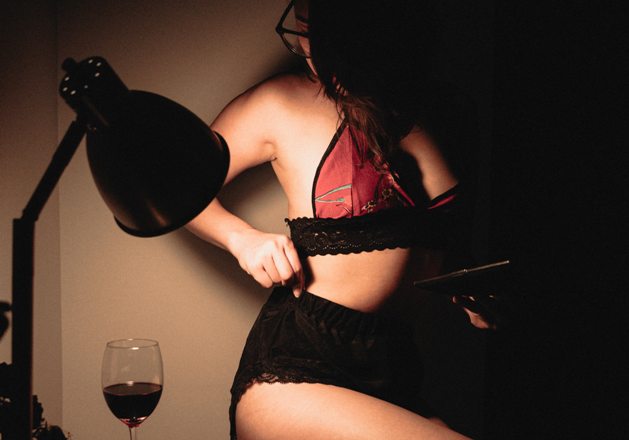Charlie Gillett Lines: Phone Sex & Erotic Chats
Charlie Gillett Lines – the hottest phone dating hub for singles seeking genuine adult fun and excitement. If you’re searching for enjoyable conversation and steamy adult entertainment, you’ve come to the right place. Charlie Gillett Lines offers you the ultimate social experience you can imagine.
Whether you’re looking for a friendly chat or a wild phone sex encounter, we’re here to cover your needs just the way you like.
The Charlie Gillett Brand in the Phone Sex Industry
Allow me to introduce myself as Charlie Gillett, the founder of Charlie Gillett Lines. Back in the ’90s, when I was still in college, I worked as a phone sex operator. This part-time job allowed me to earn extra income to cover my growing expenses as a university student.
The flexible work schedule, additional income, and personal learning significantly contributed to my life during that time.

Although some people might cringe at the idea of talking about sex or having phone sex with a stranger, I recognized its enormous potential. I also saw its benefits and vast opportunity for business growth. After completing my Marketing degree, I got a job, worked long hours, and tried to save as much as possible. Meanwhile, I continued my gig as a phone sex operator.
In 2004, I began my own brand and entered the phone sex industry. It took me another year to officially launch the company due to careful planning, concept development, and recruitment of phone sex operators. As the saying goes, the rest is history.
Charlie Gillett Lines
Launched in 2005, Charlie Gillett Lines is an adult phone chat company that initially catered to men and women seeking adult conversations, naughty chats, and phone sex.

Our highly skilled male and female phone sex operators possess sexy personalities, pleasing characters, and open minds in the erotica industry.
Starting with only two main categories, our business specifically catered to male and female markets. Female operators exclusively served male callers, while male operators catered solely to female callers. We operated alongside chat line companies such as phonesexchat.com and Red Hot Dateline.
In 2009, we expanded our services, introducing separate phone sex categories for gay and lesbian callers, which enabled our business to grow on a larger scale. Today, Charlie Gillett Lines provides four main categories for male, female, gay, and lesbian callers.

Besides phone sex and erotic chats, we also opened our lines for those wanting to chat and socialize casually or in a non-sexual manner.
While phone sex and erotica remain the core of our business, we aim to gradually introduce and promote friendly and rewarding phone interactions for our loyal clients and premium members.
The Importance of Phone Chat Lines
It’s no secret that phone sex and phone dating continue to stay relevant despite the ongoing evolution of dating apps and various adult websites. The reasons for this are clear. As a phone sex operator and owner of my own sex line business, I’ve learned the ins and outs of the industry.
This experience has shown me what many people need most – a friend to talk to, someone to make them feel better, a fun conversation, and a phone sex partner to satisfy their sexual urges.

Not only do phone chat lines benefit clients or callers, but the phone sex industry also creates opportunities for those who want to work in the field of erotica. Allow me to share with you the top reasons why phone chat lines and sex lines remain relevant today.
An Opportunity to Earn Extra Cash
One significant reason for the relevance of phone chat lines is that the industry helps those who need to earn additional income and work on flexible hours. The fact that working as a phone sex operator doesn’t require physical exertion or manual labor makes it appealing to college students, housewives, and stay-at-home moms looking for extra cash. Furthermore, this job allows anyone who is open-minded and has the ability to engage in erotic topics to work conveniently from home at their preferred time.

Understand What Most People are Going Through
During my five years working as a phone sex operator, I’ve seen the importance of phone chat lines for many people. This job helped me realize the various situations that individuals face. We can all agree that we don’t live in a perfect world where people seek companionship solely for sexual reasons. Some just need someone to talk to – a non-judgmental friend.
I was that person for some women. My clients included lonely housewives, women exploring their fantasies, and those who lacked confidence in their sexual experiences. Given the vast number of calls I received over the years, there were many other reasons people reached out.
My curiosity led me to explore other phone dating lines and visit websites featuring erotic chats, such as freechatlines.com/adult and TalkToMe. Doing so helped me see the potential of this business even more.
Essentially, women talked to phone sex operators like me because they were unhappy, insecure, and alone – in addition to being horny and desiring sex (which is a separate issue). So, in a way, I wasn’t just a phone sex operator; I also became a friend, confidante, advisor, sex mentor, and counselor on several occasions.

Phone Sex Will Never Get Outdated
As a phone sex operator, my primary responsibility was to satisfy these women’s desires and help them fulfill their fantasies. Many women called phone sex operators for guided masturbation when they felt aroused and wanted to try something new.
Others wanted to learn how to have phone sex because they were in long-distance relationships and wanted to feel more at ease with it. In these cases, I acted as their phone sex teacher, offering tips and explaining the process.
As a man, I shared my own perspectives on sex, including what men find pleasurable, what turns them on, and the sexual techniques that drive them wild.

Phone Sex, Adult Chats and Casual Conversations at Charlie Gillett Lines
Charlie Gillett Lines offers a wide variety of products and services to our clients. The massive number of calls we receive daily shows that our ongoing efforts to offer the best adult entertainment and social hotlines are successful. To give you a general idea of what you can expect from our phone lines, here’s a list of our products, features, and services:
Phone Sex for Men, Women, Gays, and Lesbians
Phone sex is our strongest trademark, and we cater to four different categories: men, women, gays, and lesbians.
Along with this feature, we promote erotic conversations and a wide range of adult topics. We maintain a highly secure platform that ensures privacy and confidentiality for each phone sex interaction.
To provide a delightful and pleasurable experience for all our clients, we have an excellent team of fun, sexy, and open-minded phone sex operators facilitating our adult lines.

Casual and Non-Sexual Conversations
Over the past few years, we have gradually incorporated casual and non-sexual conversations into our phone lines. We are currently promoting this feature to raise awareness among phone sex callers that our lines are also open for other forms of social interaction besides erotic calls.
We have been receiving more feedback from our operators about some callers who are not actually seeking phone sex, but rather wanting to engage in friendly conversations with them.
It seems that some people just need someone to talk to when they feel lonely, discontented, or alone. That’s why we see the potential of this feature growing in the coming years.

Phone Sex Lines Tips and Advice
Charlie Gillett Lines offers an interactive feature for those who want expert tips and advice about sex and relationships. This is one of our recently launched features aimed at helping people who are having trouble with their sex lives.
When you call our hotline number, you will hear this option in the main menu. You will be redirected to one of our phone sex operators assigned for this feature. Feel free to discuss your sexual concerns or seek advice on how to improve your sex life, achieve better orgasms, and explore different ways to satisfy your partner.
Our operators can also help you find the right products to enhance your sex life. They can suggest and discuss options such as sex aids, sex toys, suction toys, lubricants, and other similar items.

Customer Assistance
If you have any questions, issues, or concerns, our customer service team is available 24/7 to help.
When you call our hotline, you’ll hear this option in the main menu.
You can speak with a customer service representative to ask about service rates, request a specific phone operator, or get direct help when buying a product or package.
We also offer a range of sex toys from our industry partners. Our customer service representative can provide information on how to get these items at discounted prices.
Premium Membership Packages
Charlie Gillett Lines offers affordable options for frequent callers and regular clients.
Instead of paying on a per-minute basis ($2/minute), you can choose premium packages that cost only $1.25/minute or $1.20/minute. Plus, you can request your favorite phone sex operator.

To learn more about our premium packages, contact our customer service representative. They can help you find the right package for your lifestyle and schedule, or even customize a package for you.
Additionally, you can enjoy freebies like a 15 to 30-minute chat session for sex tips and advice, as well as discounts on our featured sex toys.
Featured Phone Sex Operators
Charlie Gillette Lines boasts a wide variety of hot, sexy, and attractive phone sex operators, ready to provide you with a delightful experience at any time. Check out our featured phone sex operators as a sneak peek:
Curvy Amanda, 22
Fun, adventurous and has a good sense of humor

Sultry Melissa, 28
Fearless, bold and ready for anything

Seductive Olivia, 23
Tempting, lustful and feisty

Call the Charlie Gillett Lines now!
Dial (888) 696-4766 to start talking to our phone sex operators.

